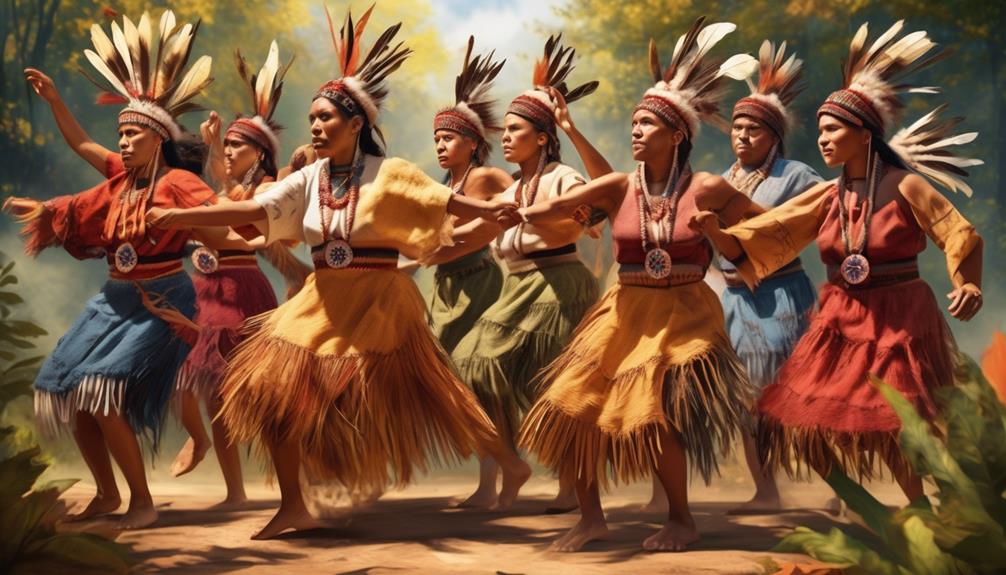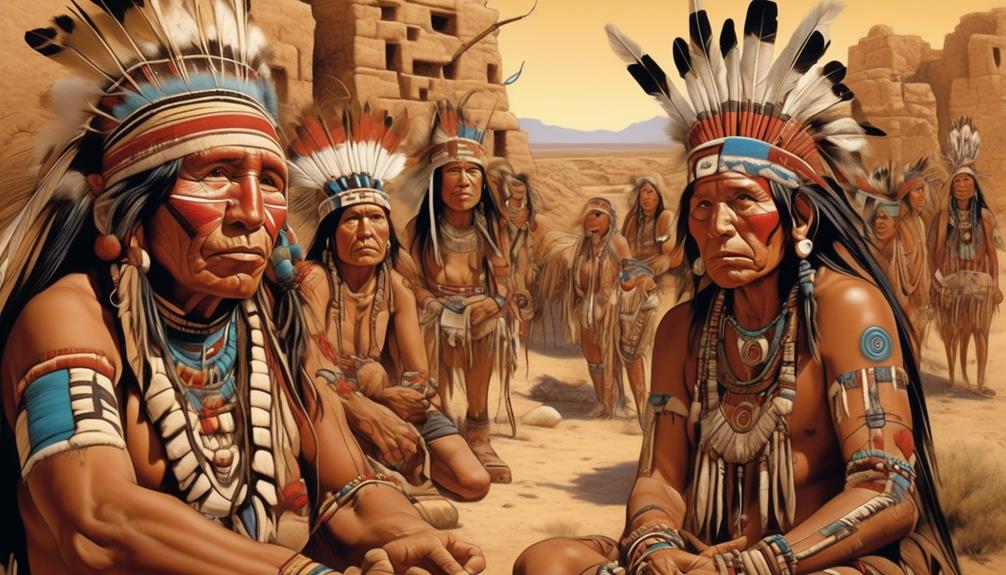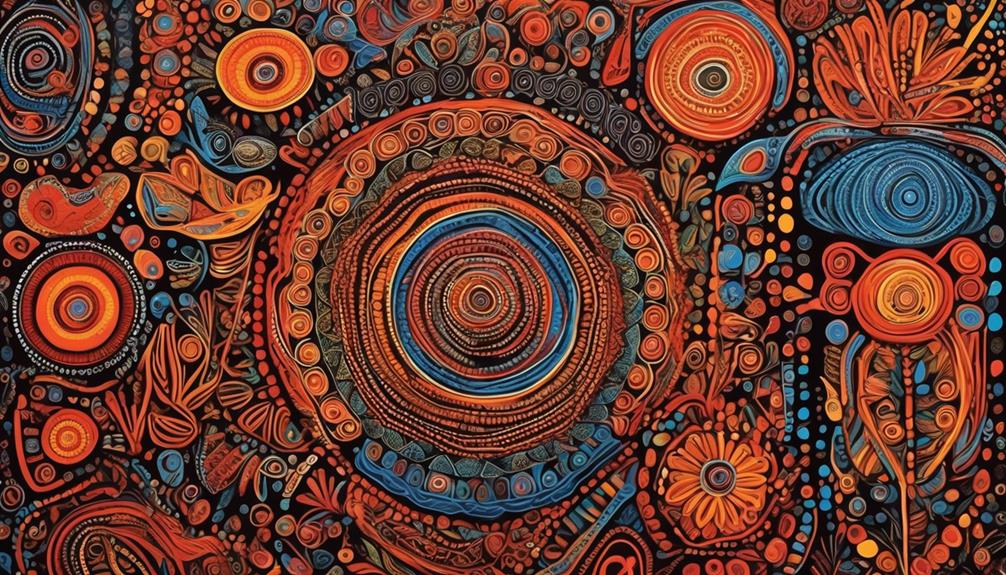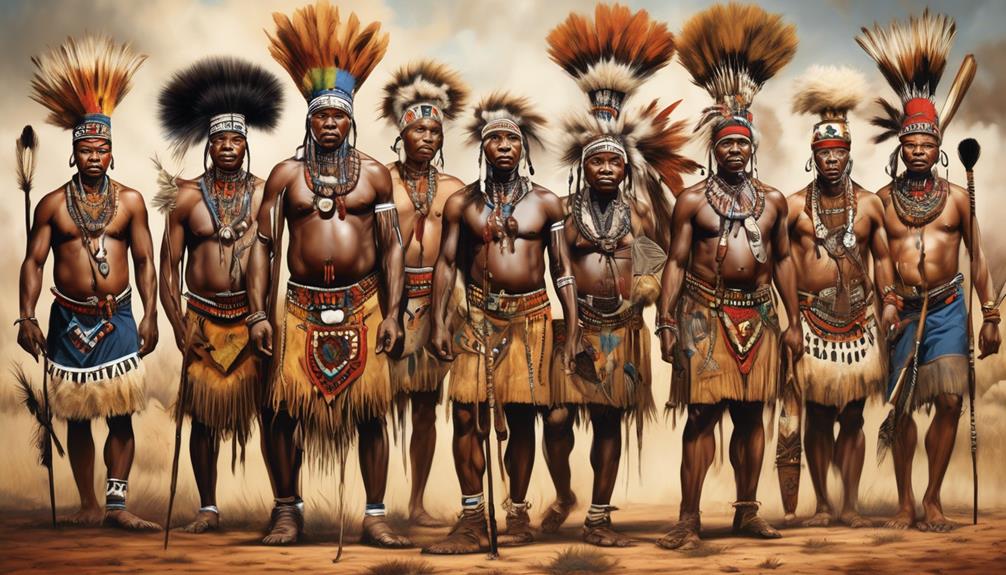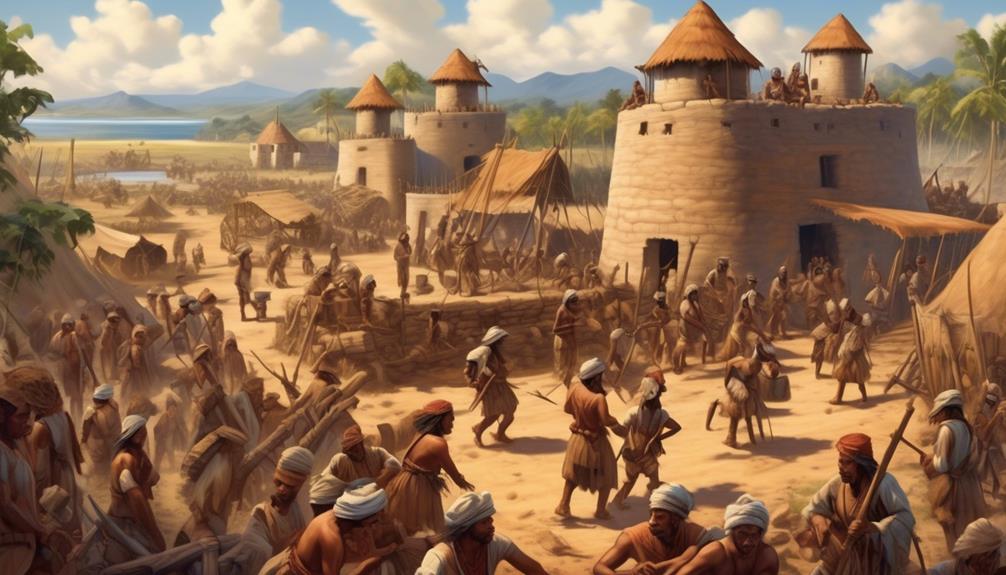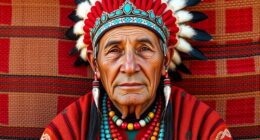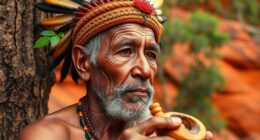As Indigenous Peoples Day approaches, we should recognize that there are over 574 federally recognized tribes in the United States. Learn more about these diverse cultures and their rich history. Keep reading to discover fascinating facts and truths that will deepen your understanding and appreciation for Indigenous communities.
Many of us may be wondering how to honor and recognize Indigenous Peoples Day in a meaningful way.
There are a variety of ways to engage in this important day, from attending Indigenous cultural events to supporting Indigenous-owned businesses.
Let's explore some thoughtful and impactful ways to commemorate Indigenous Peoples Day and show our support for Indigenous communities.
Key Takeaways
- Attend Indigenous cultural events to gain a deeper understanding and appreciation of Indigenous traditions and heritage.
- Educate yourself on Indigenous history by delving into the contributions of Indigenous peoples and seeking out reputable sources.
- Support Indigenous-owned businesses to contribute to the preservation of Indigenous culture and promote economic empowerment within Indigenous communities.
- Donate to Indigenous organizations to support their advancement, preserve and revitalize traditional languages, art, and customs, and empower Indigenous communities.
Attend Indigenous Cultural Events
We highly recommend attending Indigenous cultural events to gain a deeper understanding and appreciation of their rich traditions and heritage. Traditional crafts play a fundamental role in Indigenous cultural events, offering a window into the intricate artistry and deep cultural significance embedded within each creation. Witnessing the craftsmanship firsthand allows for a profound appreciation of the skill and cultural significance woven into every piece.
Moreover, immersing oneself in the storytelling traditions of Indigenous peoples provides a unique opportunity to grasp the oral tradition that has been passed down through generations. The stories shared during these events offer insight into the values, beliefs, and history of Indigenous communities, fostering a profound connection to their cultural heritage.
Educate Yourself on Indigenous History
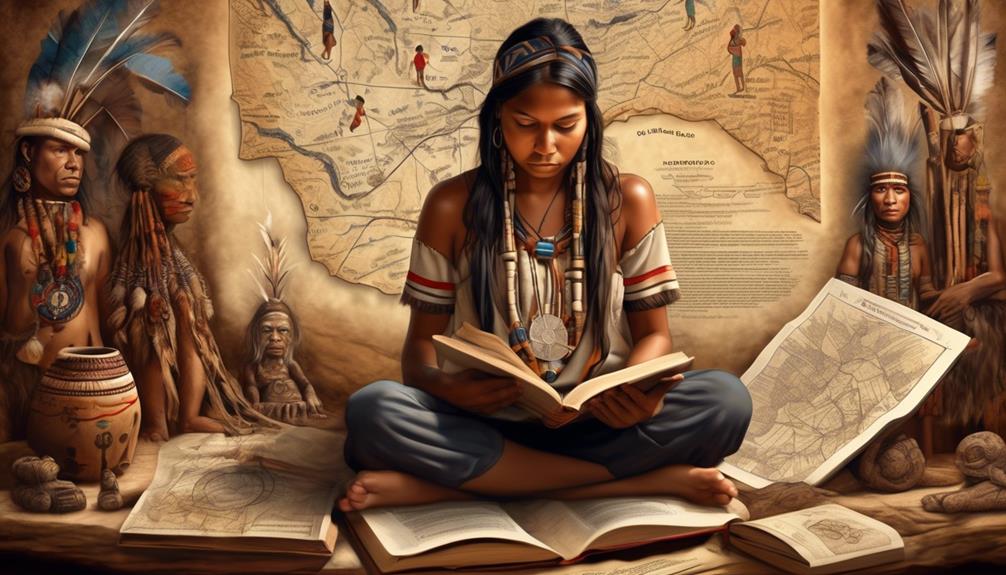
Immersing ourselves in Indigenous cultural events not only offers a glimpse into their rich traditions but also serves as an important foundation for educating ourselves on Indigenous history. To truly understand the impact of Indigenous peoples, it's crucial to delve into their history, recognizing their contributions to the world.
One way to achieve this is by seeking out reputable sources such as academic journals, books written by Indigenous authors, and documentaries that offer authentic perspectives on Indigenous history. It's also essential to engage with Indigenous communities, where possible, to gain firsthand knowledge and insights.
Understanding the impact of colonization, the forced removal of Indigenous peoples from their lands, and the lasting effects of these actions is a key aspect of educating oneself on Indigenous history. Learning about their rich cultures, traditions, and the ways in which they've been systematically oppressed is an important step in recognizing the contributions of Indigenous peoples to our society.
Support Indigenous-Owned Businesses
Delving into the vibrant world of Indigenous-owned businesses allows us to actively support and uplift these valuable enterprises in our communities. By purchasing products and services from Indigenous-owned businesses, we can contribute to the preservation of Indigenous culture and traditions while also promoting economic empowerment.
Here are some Indigenous-owned businesses that offer a wide range of products and services, including Indigenous art, traditional crafts, and culinary delights showcasing indigenous cuisine:
| Business Name | Location | Offerings |
|---|---|---|
| Cedar & Sage Co. | British Columbia | Handcrafted Indigenous art and traditional crafts |
| Tocabe | Denver, Colorado | Indigenous-owned restaurant offering Native American cuisine |
| Eighth Generation | Seattle, Washington | Native-owned business featuring Indigenous art and inspired products |
| Manitobah Mukluks | Winnipeg, Manitoba | Indigenous-owned footwear company specializing in mukluks and moccasins |
Supporting these businesses not only provides access to unique and culturally significant products but also contributes to the sustainability of Indigenous traditions and economic growth within Indigenous communities. As we celebrate Indigenous Peoples Day, let's actively engage in supporting and promoting Indigenous-owned businesses as a way to honor and respect Indigenous culture and heritage.
Donate to Indigenous Organizations
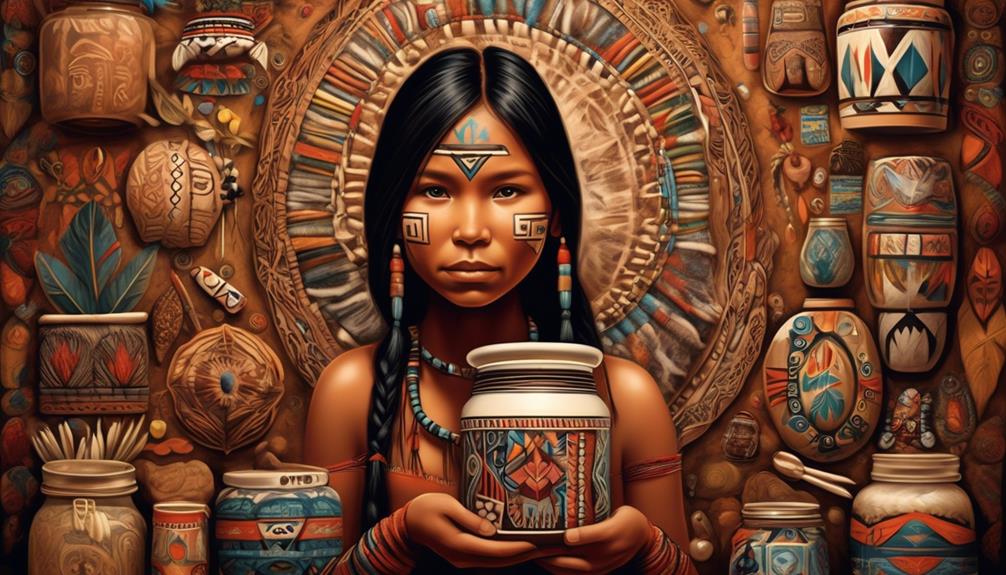
Supporting Indigenous organizations through donations is a meaningful way to contribute to the advancement and empowerment of Indigenous communities. By donating to these organizations, we can actively support Indigenous rights and cultural preservation.
Here are four compelling reasons why donating to Indigenous organizations is crucial:
- Community Empowerment: Donations directly contribute to the economic development of Indigenous communities, enabling them to preserve their cultural heritage and pursue sustainable livelihoods.
- Advocacy and Legal Support: Your donations can fund legal assistance and advocacy efforts for Indigenous rights, helping communities defend their land, resources, and sovereignty.
- Cultural Revitalization: Indigenous organizations often focus on preserving and revitalizing traditional languages, art, and customs. Your support can help ensure the survival and continuation of these rich cultural traditions.
- Youth Education and Development: Many Indigenous organizations offer educational programs and youth initiatives, helping the next generation of Indigenous leaders thrive and contribute to their communities.
Show Solidarity Through Activism
After recognizing the impact of donating to Indigenous organizations, we can now explore ways to show solidarity through activism.
One powerful form of activism is advocating for land rights. Indigenous communities often face challenges in protecting their ancestral lands from exploitation and environmental degradation. As allies, we can support their struggles for land sovereignty by participating in protests, signing petitions, and amplifying their voices through social media and other platforms. It's crucial to center Indigenous perspectives and leadership in these efforts, ensuring that their rights to self-determination and land stewardship are respected and upheld.
Another impactful way to show solidarity is to promote indigenous representation. This involves advocating for increased visibility and inclusion of Indigenous voices in decision-making processes, media, and cultural institutions. By supporting Indigenous artists, writers, and leaders, we can help challenge stereotypes and misconceptions while uplifting diverse Indigenous experiences and narratives. Additionally, advocating for policies that prioritize Indigenous representation in government and public institutions can create more equitable opportunities for Indigenous peoples to shape their own futures.
Frequently Asked Questions
What Are Some Traditional Indigenous Dishes That I Can Try at Indigenous Cultural Events?
We love exploring traditional recipes with cultural significance at indigenous cultural events.
Food tasting allows us to experience the rich culinary traditions of indigenous communities.
Some dishes to try include bannock, a type of frybread, and succotash, a dish made with corn and beans.
These dishes hold deep cultural significance and are a great way to honor and appreciate the culinary heritage of indigenous peoples.
How Can I Support Indigenous Artists and Artisans at These Cultural Events?
We can support indigenous artists and artisans at cultural events by attending their workshops and purchasing their traditional crafts. These events often showcase the rich history and talent of indigenous communities through art and music performances.
What Are Some Lesser-Known Aspects of Indigenous History That I Can Educate Myself On?
We can educate ourselves on lesser-known aspects of Indigenous history by exploring Indigenous resistance movements and the ways Indigenous communities have preserved their cultures.
Learning about the various forms of resistance, from grassroots activism to legal battles, can provide insight into the ongoing struggles for justice and sovereignty.
Additionally, delving into the methods of cultural preservation, such as language revitalization and traditional knowledge transmission, offers a deeper understanding of Indigenous resilience and strength.
Are There Any Specific Indigenous-Owned Businesses That I Should Prioritize Supporting?
We should prioritize supporting Indigenous-owned businesses to promote ethical consumerism and cultural preservation.
By seeking out Indigenous made products, we can contribute to the preservation of traditional crafts and support the economic empowerment of Indigenous communities.
It's important to recognize the value of these businesses in promoting sustainable and authentic goods while also acknowledging the historical and cultural significance of Indigenous entrepreneurship.
What Are Some Specific Ways That I Can Show Solidarity Through Activism for Indigenous Rights and Causes?
Advocacy opportunities and protest organization provide avenues for showing solidarity with indigenous rights and causes. Engaging in policy reform and community outreach amplifies our impact.
We can participate in advocacy campaigns, attend protests, and support indigenous-led organizations. By advocating for policy changes and amplifying indigenous voices, we actively contribute to the fight for justice and equality.
Our collective efforts make a meaningful difference in advancing indigenous rights and causes.
Conclusion
As we celebrate Indigenous Peoples Day, let's immerse ourselves in their rich culture, learn from their history, and support their communities.
Let's stand in solidarity with Indigenous peoples through meaningful actions and activism. Together, let's honor their resilience and contributions, and work towards a future of equality and justice.
Let's make this day a meaningful step towards understanding, respect, and empowerment for Indigenous peoples.
